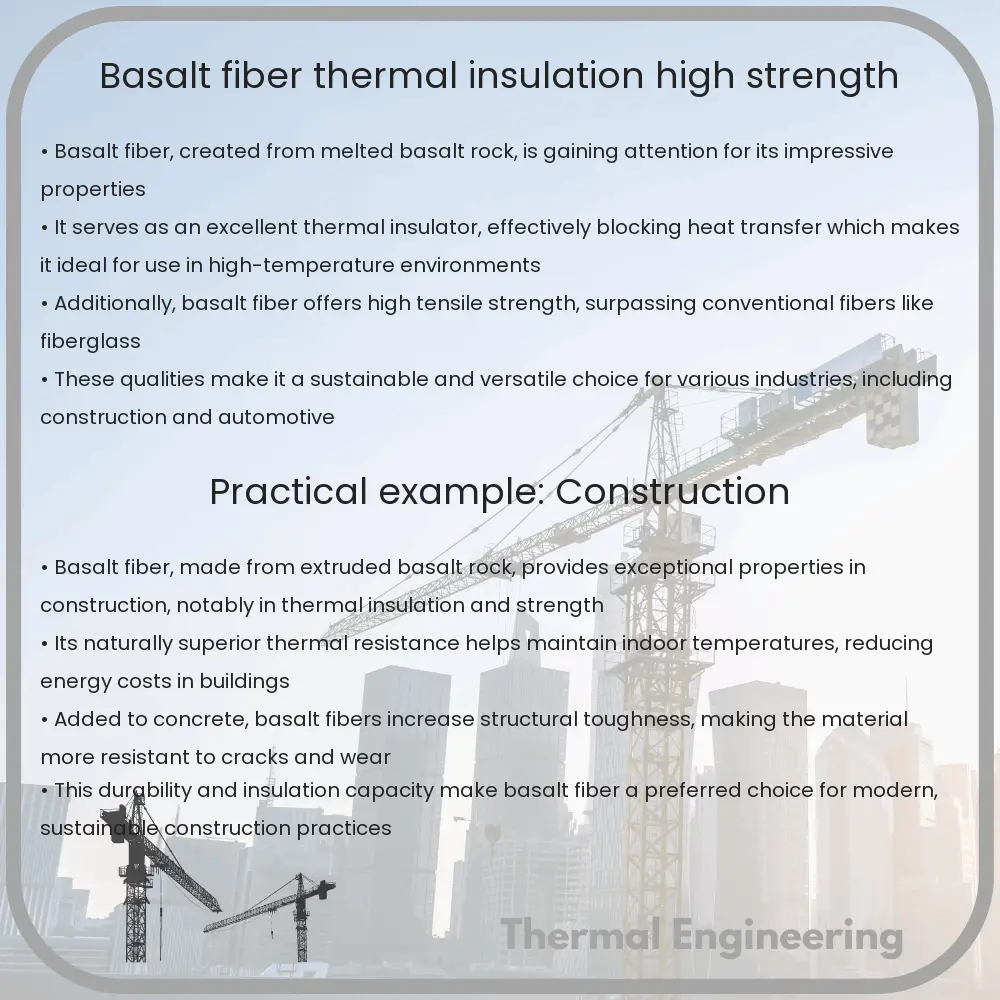Learn about basalt fiber, a high-strength, thermally resistant material derived from volcanic rock, used widely in industrial applications.

Introduction to Basalt Fiber
Basalt fiber is an innovative material made from extremely fine fibers of basalt, which is a volcanic rock composed primarily of plagioclase, pyroxene, and olivine. This material is known for its impressive mechanical properties and thermal resistance, making it a valuable resource in various industrial applications.
Production of Basalt Fiber
The production of basalt fibers involves the melting of crushed basalt rock at temperatures around 1500°C (2732°F), followed by extrusion through small nozzles to produce fibers. This process results in continuous fibers that can be further processed into various forms, such as roving, chopped strands, mats, and fabric.
Thermal Insulation Properties
One of the key attributes of basalt fiber is its excellent thermal insulation capabilities. This material has a low thermal conductivity, which typically ranges from 0.03 to 0.038 W/mK. This property makes basalt fibers an ideal choice for applications requiring heat retention or protection against heat.
- Fire Resistance: Basalt fiber is highly fire resistant and can withstand temperatures of up to 1000°C (1832°F) without significant loss of structural integrity.
- Chemical Stability: It is resistant to acids, alkalis, and salts, making it suitable for environments where chemical corrosion would degrade other materials.
High Strength-to-Weight Ratio
Beyond its thermal properties, basalt fiber exhibits a high strength-to-weight ratio, which stands competitive among other conventional fibers like glass or steel. The tensile strength of basalt fibers can reach up to 4840 MPa, making it robust for reinforcing materials.
- High Durability: Basalt fibers maintain their performance over a broad range of temperatures and do not suffer from significant degradation even in harsh environmental conditions.
- Environmental Impact: Compared to many other fibers, basalt fibers produce less environmental waste both in terms of raw material extraction and in the manufacturing process.
Applications in Engineering
The special properties of basalt fibers extend their usability to a diverse range of engineering applications. Here are some common uses:
- Construction: As reinforcement in concrete, basalt fiber can increase the material’s strength and crack resistance, which is crucial for seismic upgrading.
- Automotive Industry: Used in the manufacture of automobile components due to its strength and resistance to environmental factors, it helps decrease vehicle weight and fuel consumption.
- Insulation: Because of its excellent thermal properties, basalt fiber is used in the production of insulation products, including residential and industrial insulating solutions.
Conclusion
Basalt fiber is a material that combines high thermal resistance, strength, and environmental benefits, making it an increasingly popular choice in various engineering fields. Its durability and resistance to environmental factors ensure its place in future technologies where these properties are prioritized.